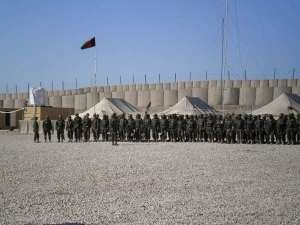The last financial quarter of last year was a time of intense complexity for the Romanian economy, in which political and economic forces faced significant challenges generated by the general elections, the tense geopolitical context and an extremely vulnerable budget execution.
On the eve of the presidential and parliamentary elections, the government made efforts to attract electoral support by increasing budget spending, using significant resources from the Reserve Fund, despite the fact that the budget deficit exceeded critical thresholds, exceeding 8.5% at the end of last year. This policy was doubled by the launch on December 30, through an emergency ordinance, of economic and fiscal reforms aimed at limiting the escalation of macroeconomic imbalances, but the short-term effects of these measures are questioned by experts and international institutions.
If October was dominated by the government's efforts to manage economic and social pressures by supplementing ministries' budgets and launching bond issues on domestic and foreign markets, with a focus on financing current expenditures, November brought a climate of economic and political instability, intensified by the controversial results of the presidential elections, which generated volatility on domestic financial markets and concern among investors.
December culminated in a major political crisis, with the cancellation of the presidential elections and the adoption of severe fiscal measures, in the form of the controversial "Trenuleţ" Ordinance, aimed at limiting state spending and increasing budget revenues.
These three months revealed Romania's economic and political fragility, as well as the difficulty of implementing sustainable measures in an internal and external environment characterized by uncertainty. From ambitious fiscal adjustment plans and strategic investments to electoral scandals and social protests, this quarter was an expression of the tense intersection between economics and politics, deeply marking the country's prospects for 2025.
• October: Massive budget spending and attempts at macroeconomic stabilization
The middle of the calendar autumn was dominated by the government's decision to allocate additional amounts from the Reserve Fund to various ministries, despite the fact that the budget deficit had already reached 5.44% of GDP, after the first three quarters of 2024. After the budget rectification it carried out in early September, the government continued to increase public spending to meet the demands of unions and to support various electoral projects. Notable allocations included: 5 billion lei for the Ministry of Transport - directed towards infrastructure projects, 1.1 billion lei for CNAS - necessary to support medical expenses, 800 million lei for the Ministry of Education, for school infrastructure projects, massive funding for the "Anghel Saligny" program and the payment of outstanding amounts on the Start-Up Nation program. Furthermore, the Executive approved the granting of "Innovation Vouchers", totaling 8 million lei, to facilitate the purchase of research, development and innovation (RDI) services from research organizations by enterprises.
These measures were criticized by economic analysts for increasing the pressure on the state budget, while increasing public debt.
In this context, the Ministry of Finance developed an ambitious seven-year fiscal adjustment plan, aimed at gradually reducing the budget deficit to 2.5% of GDP by 2031. This plan involved increasing budget revenues through tax reforms, including improving VAT collection and reducing tax evasion, and reducing public spending, especially personnel and social assistance.
To continue financing budget spending, the Government continued to borrow money on international markets, launching a 33 billion yen Samurai bond issue, aimed at raising 200 million euros. At the same time, domestic issues of Fidelis and Tezaur government bonds raised over 3.5 billion lei, breaking previous records.
In this macro-financial context, the NBR Board of Directors maintained the monetary policy interest rate at 6.5%, and S&P reconfirmed Romania's country rating at BBB-/A3, emphasizing that economic stability depends on the implementation of structural reforms.
• November: Tense elections and economic volatility
The organization of presidential and parliamentary elections led to a significant increase in public spending, although the budget deficit at the end of the first 10 months of last year had reached 6.19% of GDP. However, the PSD-PNL government continued to allocate significant amounts from the state budget for several infrastructure projects. Among the respective allocations, we mention the amount of 10.9 billion lei for the modernization of 143 kilometers of railway, the purchase of 23 modern electric locomotives for the amount of 760.3 million lei, the purchase of nine long-distance interregional electric trains for 447.4 million lei, but also the supplement of the budget of the Ministry of Transport with over 1.4 billion lei to support rail transport and other infrastructure projects. In the field of state aid, the Executive decided to grant 495.2 million lei as a grant to the company Nokian Tyres for a total investment of 3.116 billion lei in Oradea. The new factory will create over 550 jobs and will have a major economic impact at the local level.
Also in November, at the initiative of the Ministry of Economy, Entrepreneurship and Tourism, the Government allocated 100 million lei to continue payments to SMEs through the "Start-up Nation" program, 2022 edition. Due to the lack of funds necessary for the payment of pensions following this year's recalculation, the Government supplemented, in November, the budget of the Ministry of Labor and Social Solidarity with 1.6 billion lei, money used for the full payment of pensions in December 2024. The Executive also allocated approximately 1.6 billion lei to the same ministry for the payment of allowances, indemnities and social assistance, including for heating in the cold season.
Significant amounts were also allocated from the state budget in the field of Health. Thus, the Government supplemented the budget of the Ministry of Health with 1.4 billion lei for the full payment, in December 2024, of medical materials and services.
Another measure taken by the Government in November was the increase in the gross minimum wage in the country, starting with January 1, 2025, from 3,700 lei to 4,050 lei, a measure that benefits over 1.8 million employees.
These allocations have been criticized for their lack of sustainability and for being electorally motivated.
- Strategies for sustainable development
Also in the second month of the fourth financial quarter of last year, the Government adopted a series of strategies for sustainable development. For example, through the Energy Strategy 2025-2035, which aims to reduce dependence on imported natural gas, the import of natural gas is to be reduced to zero by 2027, the amount of greenhouse gas emissions is to be reduced by 87% by 2035, advanced thermal solutions are to be promoted, in order to increase energy efficiency, and universal access to electricity, including in isolated and vulnerable areas. The energy strategy provides for the following objectives: achieving a total installed capacity of 40 GW by 2035, with 80% from renewable sources; installing 19.5 GW from wind and solar sources, respectively increasing the share of renewable energy in electricity consumption from 41% in 2020 to 61% in 2035; developing a total electricity storage capacity of 2,000 MW by 2030, through batteries and pumped storage hydropower plants; integrating 5% biomethane into the natural gas network by 2030 and 10% by 2050; extending the life of existing capacities by 2035, building new large-scale capacities, as well as small modular reactor (SMR) generation capacities.
The Industrial Strategy for the period 2024-2030 provides for increasing the competitiveness of the industrial sector by adopting advanced technologies, promoting innovation and the transition to the circular economy, supporting industrial exports and the resilience of supply chains, as well as developing a skilled workforce and attracting investments in sectors with high added value.
The National Strategy for Non-Energy Mineral Resources 2025-2035 addresses the need for reindustrialization and the responsible use of non-energy mineral resources, in the context of the transition to sustainable mining and the circular economy. The document proposes the inventory and valorization of strategic resources, including waste dumps and tailings ponds, the transformation of the mining industry from energy-intensive mining to responsible mining and the development of industrial capacities for the production of batteries and advanced materials such as graphene.
The Strategy for the Defense Industry aims at the modernization of industrial capacities and international cooperation. Based on the needs for the provision of weapons, ammunition, products, systems and military platforms of the National Defense System Forces as well as the need to protect essential security interests, 14 priorities were identified, including the resumption of the manufacture of single-, double-, triple- and spherical-based powders and the development of capacities for the production of high explosives (TNT, RDX, PETN), powders needed to produce rocket fuel, resuming the manufacture of detonating, initiating and other pyrotechnic elements, ensuring domestically the main raw materials needed to manufacture powder for ammunition, or transforming and revitalizing the manufacturing capacities of infantry weapons and optoelectronic equipment in such a way as to ensure the transition from existing individual weapons to NATO standard ones.
- Presidential elections
The first round of the presidential elections held on 24 November was marked by major controversies, including accusations of external influence and the improper use of social platforms to promote candidates. The result of the first round, dominated by candidate Călin Georgescu, generated significant volatility on the Bucharest Stock Exchange, in the context of concerns about the rise of extremism. Immediately after the first round of the presidential elections on November 24, a real scandal erupted due to the fact that the independent Călin Georgescu was promoted intensively on TikTok and Facebook, but did not declare any campaign expenses. Due to the existing suspicions that state (states hostile to Romania) and non-state financiers were behind this, President Klaus Iohannis decided, on November 27, to convene the meeting of the Supreme Council for the Defense of the Country for the second day, in which the entire situation would be analyzed. Following the CSAT meeting on November 28, after analyzing the data provided by the Special Telecommunications Service, the Romanian Intelligence Service, the Foreign Intelligence Service and the Ministry of Internal Affairs, the members of this structure found that there were cyber attacks with the aim of influencing the fairness of the electoral process in the presidential elections, from some state actors (the CSAT mentioned the Russian Federation as a priority) and non-state actors. The analysis of the documents revealed that, in violation of electoral legislation, a presidential candidate benefited from massive exposure due to the preferential treatment that the TikTok platform granted him by not marking him as a political candidate, namely without requiring him to mark his electoral video materials with the unique identification code assigned by the Permanent Electoral Authority upon the appointment of the coordinating financial representative, an obligation imposed by electoral legislation. This preferential treatment was exacerbated by TikTok's failure to comply with the Decision of the Central Electoral Bureau, which found that, in fact, the Chinese company, contrary to what was officially communicated to the Romanian authorities, had not implemented the provisions of the BEC Decision in any respect. From this perspective, the CSAT took note of the fact that, certainly, the social network TikTok, by not implementing the BEC Decision, had not complied with the legal norms regulating the conduct of the electoral process, with an impact on its final result.
Therefore, the CSAT asked the authorities with responsibilities in the field of national security, those with responsibilities in the smooth conduct of the electoral process, as well as the criminal investigation bodies to urgently take the necessary steps, according to their legal competences, to clarify the respective aspects.
• December: Political crisis and fiscal austerity
The last month of the year began with the parliamentary elections of December 1, following which 34% of the new Parliament is made up of sovereignist, nationalist forces: AUR, SOS and POT. Even though the parliamentary elections were held under the same conditions as the presidential elections of November 24, on December 6 - while the Diaspora was voting in the second round of the presidential elections - the Constitutional Court decided to annul the entire election for the supreme office in the state, based on documents presented by the secret services in the CSAT meeting of November 28, causing a wave of public and political discontent. The cancellation of the presidential elections meant that most of the 1.4 billion lei (i.e. around 300 million euros, compared to the 150 million euros allocated for the 2019 presidential elections) allocated by the Government for this election was spent unnecessarily, as long as the electoral process was cancelled. To this amount must be added 109.59 million lei, the total amount spent by the candidates in the presidential elections according to AEP data, excluding the amounts undeclared by Călin Georgescu, but which, at first glance, would amount to millions of euros, amounts that the Authority must return from the state budget to the respective candidates.
In this context, the new Parliament - in which the pro-European coalition PSD-PNL-UDMR and the group of national minorities is in the majority - approved on December 23 the new government led by the same Marcel Ciolacu, as prime minister, although under his initial leadership the year 2024 ended with a budget deficit that exceeded 8.5% of GDP, i.e. over 190 billion lei, well above the 5% deficit approved in 2023 by the state budget law for 2024.
The new Government also faced the negative outlook of the BBB- index granted by the Fitch agency to our country on December 17 regarding economic development, an outlook that mentions the risks associated with political instability and countless fiscal slippages last year. According to Fitch experts, the fiscal deterioration above expectations since the end of last year mainly reflects the rapid increase in spending, including public sector wages, and unfunded pension increases before the elections. Fitch states that the full-year impact of the September 2024 pension increase will add to fiscal pressures in 2025, which will cause future fiscal consolidation. Therefore, the rating agency's experts estimate a general government deficit of 7.5% of GDP in 2025 and 6.8% in 2026, more than double the BBB median of 3.2% in 2025-2026. In the Fitch scenario, the share of public debt in GDP will increase from 49% in 2023 to 62% in 2026, above the BBB median projected at 56%, and will continue to rise sharply to around 70% of GDP in 2028. The international rating agency also considers that our country's net external debt will increase from 12% in 2023 to 20% of GDP in 2026, significantly above the 3% projected for the "BBB" median of 12%.
In light of this forecast and in order to comply with the provisions of the 7-year fiscal recovery plan agreed with the European Commission, the new government in Bucharest was forced on the penultimate day of the year to take drastic measures, which it approved through an emergency ordinance - the so-called small train ordinance.
These measures include:
-reducing the turnover threshold for taxation of micro-enterprises from 500,000 euros to 250,000 euros in 2025 and to 100,000 euros in 2026
- increasing the dividend tax from 8% to 10%
- eliminating tax facilities for IT, agriculture and construction
- reintroducing the tax for special constructions - the so-called pillar tax -, in the amount of 1%
- freezing the salaries of public sector employees and freezing pensions
- granting holiday vouchers on condition that the employee contributes half of their value
- reducing free transport for pupils and students; they will benefit from a discount only for transportation between their place of residence and the one where they are studying
- overtaxation of energy companies
These measures were criticized by the business environment and unions, being perceived as a form of austerity that undermines economic competitiveness.





























































